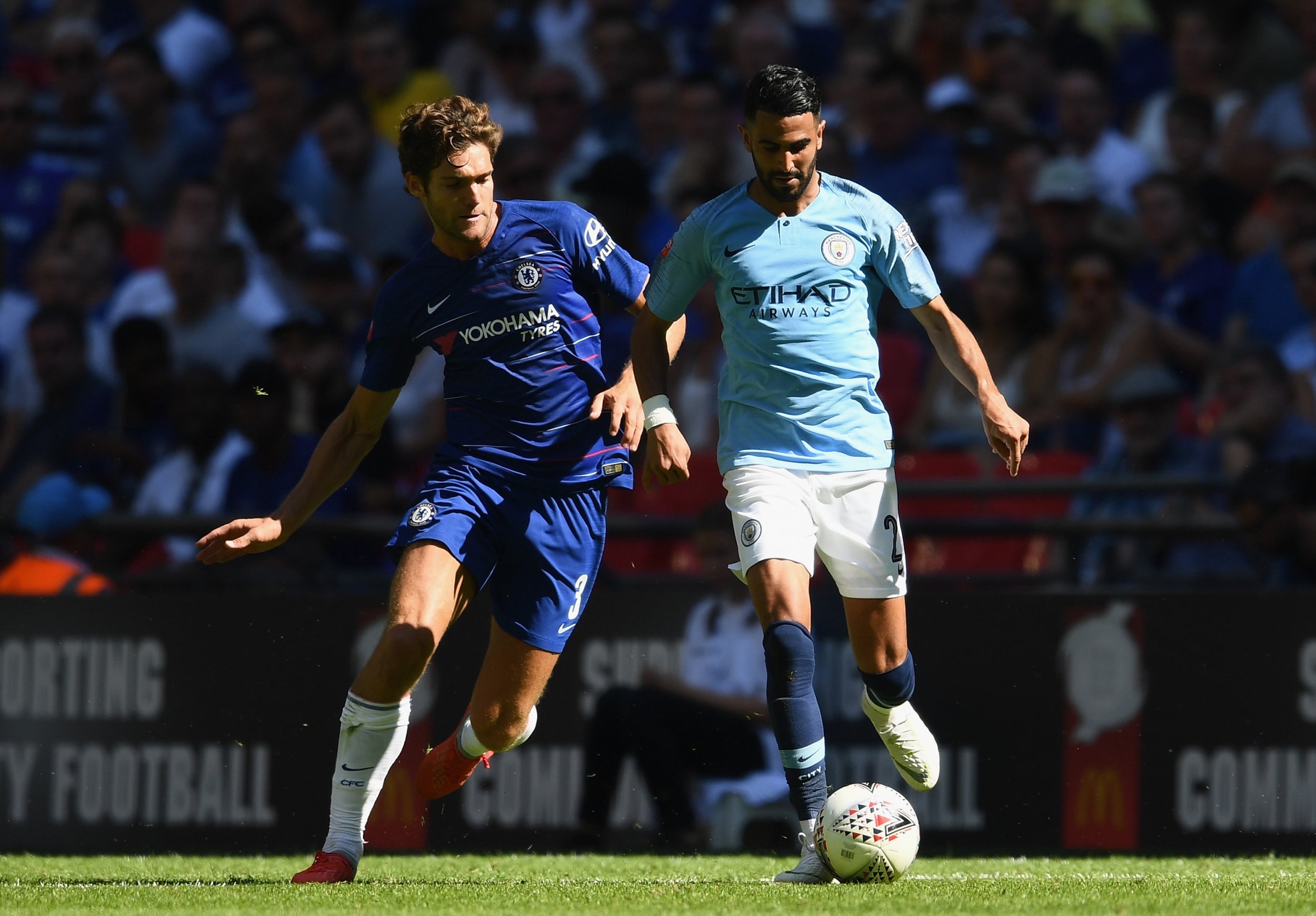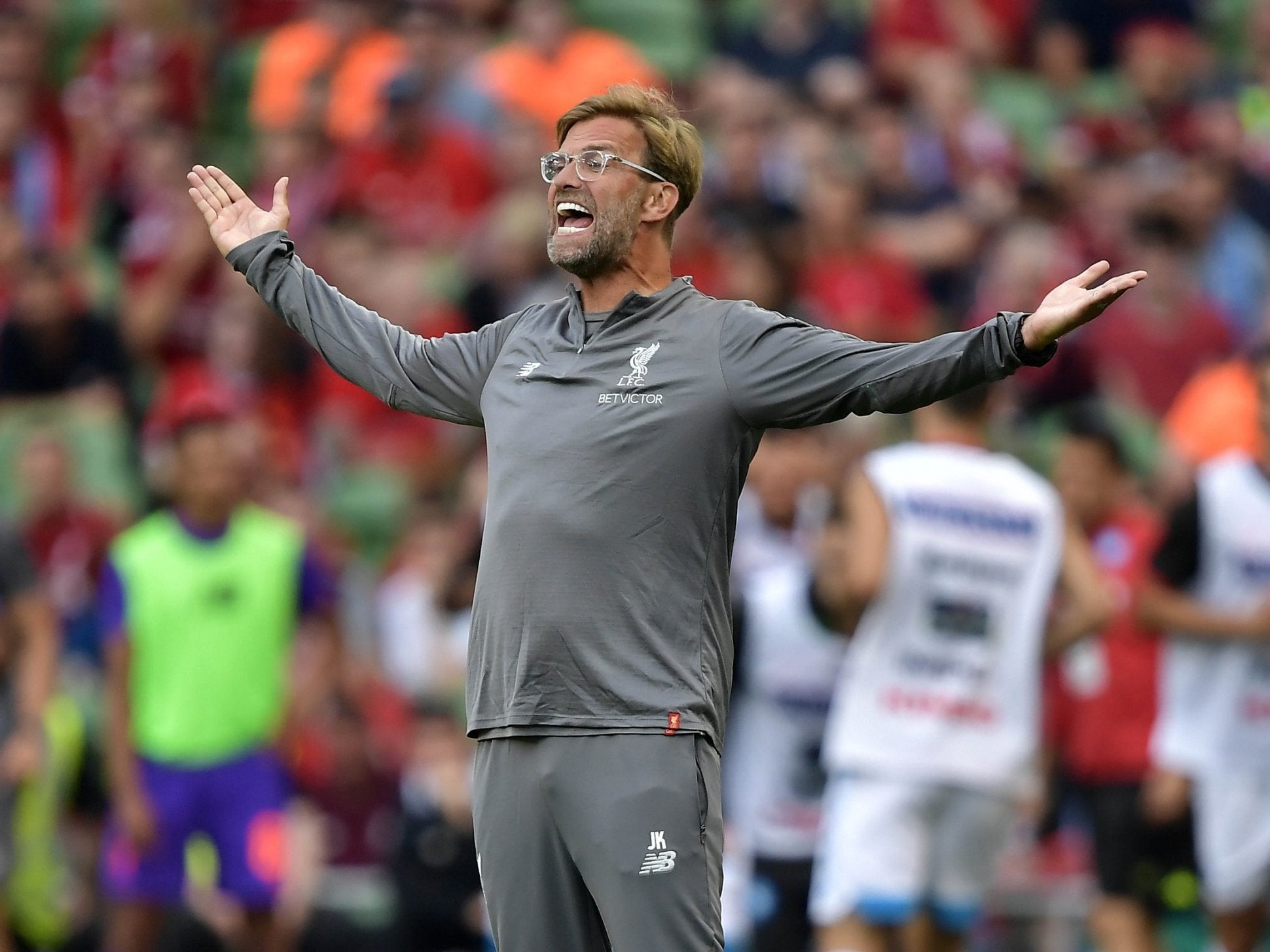An era of dominance beckons for Pep Guardiola's irrepressible Manchester City
It is hard to remember the last side which began a season as unanimously backed, as admired and as likely to win the title as this City team
In boardrooms, changing rooms and concourses across the country this weekend, one question hangs over the new Premier League season: are we now in the era of Manchester City hegemony?
Pep Guardiola’s record breakers start against Arsenal on Sunday afternoon and it is hard to remember the last side which began a season as unanimously backed, as admired and as likely to win the title as this City team. Everything suggests that they will play even better than they did last year, even if it is statistically improbable that they pick up so many points.
While City retaining the Premier League looks like the obvious outcome, at least from this vantage point before the season has started, doing so would be at odds with the recent history of the competition. No-one has done that since Manchester United’s three consecutive titles at the end of the last decade. Since then we have had nine consecutive single-season winners, and nothing ever threatening a dynasty.
That unpredictability has been an important part of how the Premier League sells itself. Even such a financially stratified competition has proven strangely resistant to being dominated. Of the last five reigning champions only one, Manuel Pellegrini’s Manchester City in 2014-15, has finished in the top four, or finished within 20 points of that year’s title. The ‘Mourinho Season’ is not as rare as we might think. Chelsea finished 31 points off the top in 2015-16, and 30 points behind as defending champions last year.
This is why there is such trepidation, especially in the broadcasting world, of City racing off into the distance again this season. They have already set a new standard, the age profile of the squad is good, and in May Pep Guardiola signed on for another three years. And his futuristic football team is the greatest threat to that scrappy, hectic single-season champion pattern since Sir Alex Ferguson retired back in 2013, an ominous prospect for the rest of the pack.
Even though City broke the wins, points and goals records last season, Guardiola certainly thinks they can keep improving this year. His view is that for as long as his individual players can keep getting better on the specific skills of the game, then so can the team as a whole. What is a team if not the aggregate strength of its parts? “A team is individual players,” he explained after the last game of last season. “And you can always improve individual players.” Only Fernandinho and David Silva, of the City first team, are past their physical peak but even they are getting more intelligent. Sergio Aguero has just turned 30 and Guardiola said his last season was his best yet. They still look like players on the way up.
And despite what Guardiola says, he knows that a team is more than just individual players. Those bonds of trust, experience, communication and team-work are the difference between a team and the sum of its parts. All the more so playing for Guardiola, with his complex philosophy of football, taking in both basic principles and specific practices. The more the players learn, the more they understand, the better they will play.
That is why Guardiola teams keep improving, and why their third season is always the strongest. Even when they have learned this system they can still master it. Guardiola’s third season team at Barcelona, 2010-11, was unambiguously the greatest side of the modern era. They won La Liga, the Champions League, then the Super Cup and the Club World Cup soon after. His third season at Bayern was just as dominant. They were the best team in Europe and only the unfortunate details of their semi-final against Atletico Madrid, not least Thomas Mueller’s missed penalty, stopped them from reaching the Milan final.

To watch Manchester City play towards the end of the last season was to see a team who had fully learned the Guardiola system. Every pass, every run, every overload, every formation was so internalised that execution was automatic. That was how Kyle Walker described it in the aftermath of Sunday’s Community Shield, when City looked like they had never been away and beat Chelsea 2-0. “We all know when to press, we know where people are,” Walker said. “Sometimes you can almost play the game with a blindfold on, because you now where people are. That is down to his coaching skills and what he brings Monday to Friday on the coaching pitch, to achieve what he achieves on match day.”
But that does not mean Guardiola will now leave his team on cruise control. He wants them to keep learning and even in pre-season so far their double sessions have been more tactical than physical. Guardiola thinks the team can especially improve against opponents who play a deep 5-4-1, with their lone striker shutting down Fernandinho. That could mean a new system to get more men in the front-line. In his third year at Bayern Guardiola played 2-3-5, and he finished last season at City with a 3-3-4. Expect more innovation this year to stop opponents catching up.
Throw in the arrival of Riyad Mahrez, the return of Benjamin Mendy and the integration of Aymeric Laporte and City are far likelier to be better this year than worse. They will play more precise, penetrative controlling football than ever before. It does not necessarily follow that they will beat last year’s record of 100 points, just because of the statistical improbability of sneaking back through such a narrow margin a second time. Guardiola knows that, but he has always known that the process of performance is more important than the contingency of a result. “What enriches you is the game,” said his hero Juanma Lillo. “The result is a piece of data”.

So after City finally reached 100 points last year, with the last kick of their season, Guardiola accepted that City’s football can get better even if their results get worse. “When you analyse the numbers, I will say, ‘can we improve the numbers?’ No. There I agree with you. We cannot be better in terms of numbers. But in terms of playing football, yes.”
Guardiola accepts that, like a team responding to a mammoth total in a one-day international, this year’s City will always be behind the curve that has been for them. “In November and December, people will say ‘City have less points than last season’. We are going to lose every day compared with this season, every one. That will not be important.”
What is important is whether City will be caught up. And even if they drop down into the low 90s with their final points tally, who could you see catching them? This Liverpool team would be good enough to win the title in almost any other era, and of course they can win it this season. But they would need to have a perfect year, with all of their best players at their best throughout. They would probably need to go out of Europe early, because Jurgen Klopp’s management is geared towards either domestic or European success in one season but not both at the same time. Both Bundesliga titles he won at Borussia Dortmund came when they were out of Europe by Christmas.

Even if Liverpool’s signings giving them another 15 points this season, taking them up to 90, just think of the confluence of circumstances that would force City to drop below that. They have the strength in depth to ride out almost any injury crisis. Look back at their performance at Wembley on Sunday, and then a list of players who did not even start: Ederson, Vincent Kompany, Nicolas Otamendi, Ilkay Gundogan, David Silva, Kevin De Bruyne, Raheem Sterling and Gabriel Jesus. Liverpool have a brilliant first eleven, and they beat City three times out of four last season. But they cannot match them for depth, and probably not for the 38-game repeatability that wins titles.
Of course every trend feels permanent at the time, especially in the short news-cycle world of English football. When United won their third title in 2008-09 it felt like they would keep winning, but then they sold Cristiano Ronaldo and Chelsea won next year. When Jose Mourinho won his first two with Chelsea it felt like he would never stop, before his first ever third season kicked in. One day Guardiola will leave City, and one season they will not win the league. But heading into this one, we find ourselves in an era that they have built.
Join our commenting forum
Join thought-provoking conversations, follow other Independent readers and see their replies
Comments
Bookmark popover
Removed from bookmarks